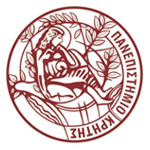,
Eastern Macedonia and Thrace Institute of Technologie
Computer and Informatics Engineering
Theodoros Pahidis
Eastern Macedonia and Thrace Institute of Technologie
Computer and Informatics Engineering
Ekaterini Mitsa
Eastern Macedonia and Thrace Institute of Technologie
COMPUTER AND INFORMATICS ENGINEERING
Dimitris Papazoglou
University of Crete
Department of Materials Science and Technology
Nikolaos Chaniotakis, Maria Fouskaki, Kallia Katsampoxaki-Hodgetts
University of Crete
Department of Chemistry
Nikolaos Katsikoudis
University of Ioannina
Department of Fine Arts and Sciences of Arts
